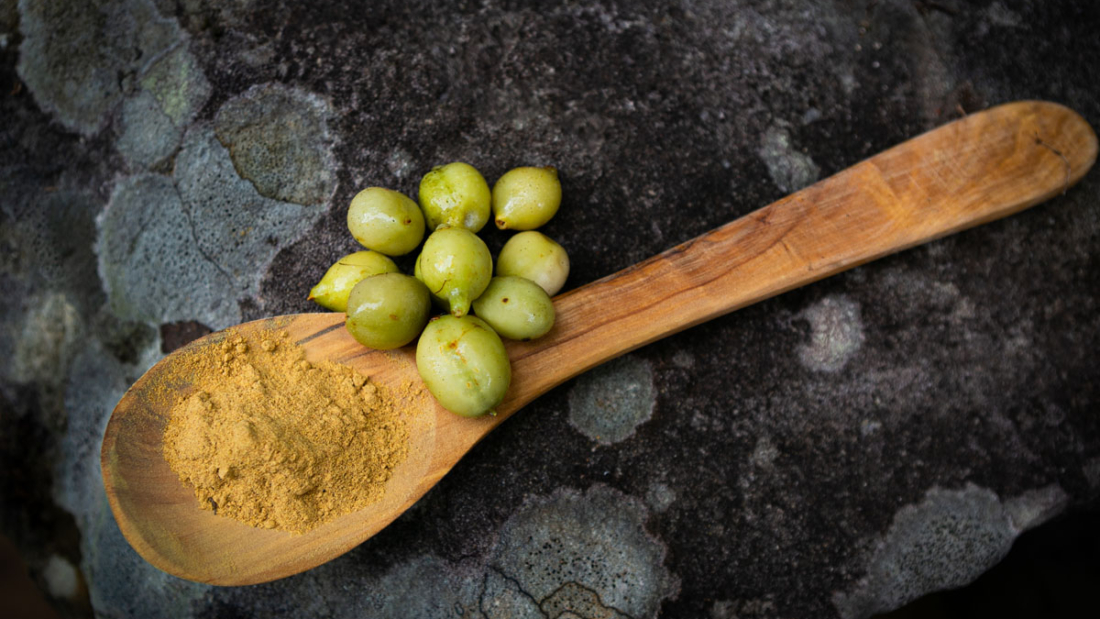Kakadu Plums have 100 times more vitamin C than Oranges.
Vitamin C as an Example.
Perspective on Vitamins.
Let’s use vitamin C as an example of one nutrient that most people are familiar with. Most of us take it for colds or when we are feeling sick. The other 300+ days we don’t think twice about it or really think we need it. We think in terms of symptomatic prevention or in terms of the minimum RDA to prevent a nutritional deficiency or pathology. It’s not expensive, however we tend to think of the minimum we can get by with instead of taking the optimum amount. This is what we are taught – as long as there is not a severe pathological deficiency with symptoms, we are fine. The truth about vitamin C, is that for colds, while it does provide a boost for the immune system, the effects may not be as dramatic as you think. Some studies suggest that it shortens an average cold by about 6 hours. My personal opinion is who cares about 6 hours? But this is when or why many people purchase vitamin C. Unfortunately, the short sighted distraction of symptomatic relief of colds, prevents us from understanding it’s value the rest of the time when we are not sick.
Vitamin C keeps glutathione (the most powerful antioxidant in the body) in its active form. It is essential for the production of collagen and connective tissue found in nerves, bone, skin, cartilage, and blood cells. It helps bleeding gums, helps wounds heal faster, prevents testosterone from conversion to estrogen in men, prevents damage to tissues from high blood sugar, and helps make some hormones like estrogen, progesterone, and growth hormone. Also, it is used in the synthesis of dopamine, and epinephrine, and has a number of cognitive benefits, including lower risk of dementia. It protects your memory as you age, increases iron absorption, and is important in adrenal function in response to stress. Vitamin C also plays a role in blood pressure, reduces risk of chronic disease, may reduce risk of certain types of cancers. It is also protective against eye diseases, decreases wrinkling of the skin, and decreases risk of stroke.
These are a few examples. Also consider the roles of B-vitamins, zinc, magnesium, vitamin D, and other nutrients with their multitude of ongoing benefits that we rarely think about. Instead of thinking about vitamins and mineral in terms of hours or days, think of them in terms of years or decades and what effect that would have on your body and how you feel. What physiological differences will be present with years of long-term deficiencies, compared to many years of optimal amounts?

Kiwi Kakadu Plum Smoothie Bowl
https://www.monashfodmap.com/recipe/kiwi-kakadu-plum-smoothie-bowl/

The highest content of Vitamin C in nature is found in Kakadu Plums.
Kakadu Plum Freeze-Dried Powder
Concentrated natural whole food sources are available in Vitamin C spray.

